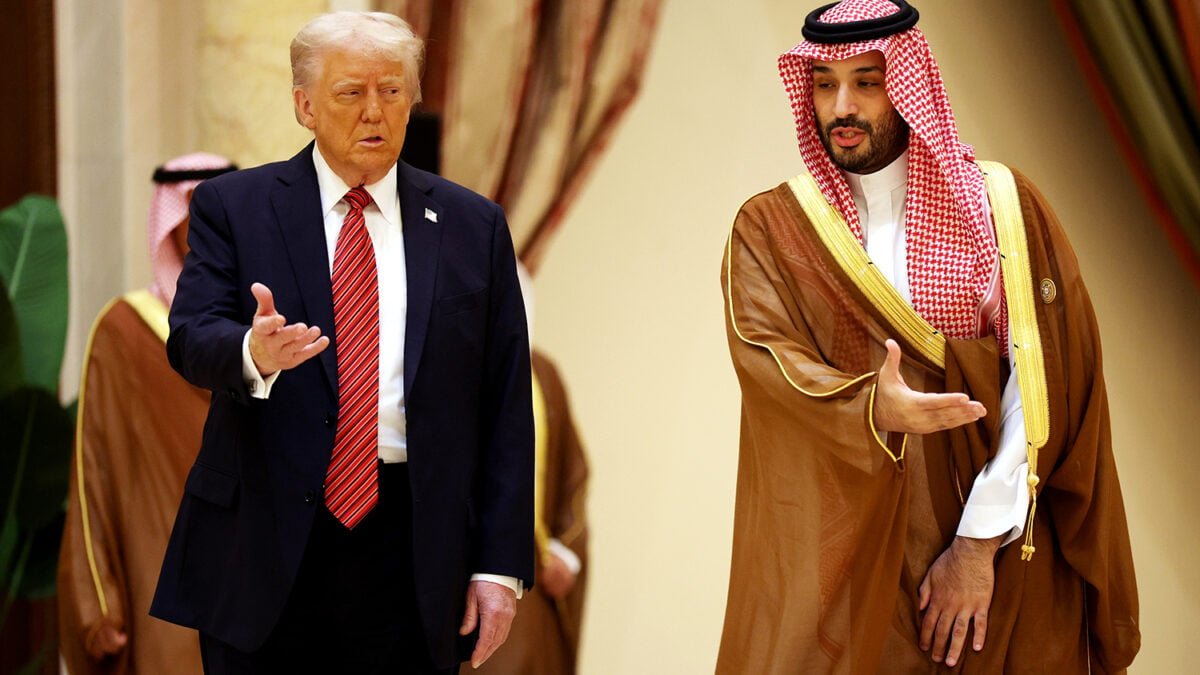
The Trump Organization and London-based luxury real estate developer DAR Global have announced A new hotel development known as Trump International Hotel Maldives will be tokenized on an apparently yet-to-be-announced blockchain. According to a press release attached to the announcement, it will be the first token from a real estate project that is still in development.
The past few years have seen a massive expansion in crypto-related activities of Trump-affiliated companies with the launch of World Liberty Financial, Trump Memecoin, Trump’s Non-Fungible Token (NFT) collection, and more. The recent apology of former Binance CEO Changpeng “CZ” Zhao and the potential conflict of interest associated with Trump Memecoin are two examples of how Trump is more focused on his own crypto-related profiteering than embracing Bitcoin’s decentralization principles In the first year of his second term as US President.
Haha. You are not wrong. It depends on what level of fraud you’re aiming to commit: deploying a real blockchain for a silly reason (technical fraud), or simply telling them it’s a blockchain when it’s not (social fraud??). Or a more charitable interpretation is that it is not fraud if…
– Brian Bishop (@kanzure) 9 November 2025
The crypto industry, including large exchanges interested in listing questionable, unregistered investments on their platforms, threw large amounts of money into Trump’s presidential campaign before the Republican candidate’s victory, leading to a situation where financial crime is largely considered effectively legal, as long as it operates on the blockchain (or as long as the term blockchain is used in marketing materials at least).
While Bitcoin is slowly evolving into a reliable store of value for the digital age (see its recent embrace). Harvard University Endowment Or Central Bank of the Czech Republic), use cases for blockchain technology outside of Satoshi Nakamoto’s original invention are unclear. In fact, most crypto, whether it’s stablecoins like USDC or blockchains like Coinbase’s Base Blockchain, involves the use of decentralization theater Only for the purposes of avoiding financial regulation.
Notably, the announcement of the Trump-affiliated token hotel comes at a time when former SEC Chief of Staff Amanda Fisher is debating with crypto brethren on some of these same points on X. For example, Fischer pointed to past SEC guidance regarding the application of existing securities laws to newly issued crypto tokens, which is an indication that the crypto industry should be more troubled by the reality of existing laws than the SEC.
The SEC in 2017 – during Trump’s first term – issued 18 pages of guidance on how DAOs might fall within the scope of securities laws. This is guidance you claim does not exist. Not liking it or thinking laws are for fools doesn’t equate to lack of clarity https://t.co/2q6TXRL2u6 https://t.co/E0fP7p9xXe
– Amanda Fischer (@amandalfischer) 14 November 2025
“Tokenization,” which everyone sees as the next big thing in fintech Vlad Tenev of Robinhood To Larry Fink of BlackRockBasically a drop-in replacement for the buzzword “blockchain technology” that was the main talking point for fintech gurus in earlier times. While the reasons for tokenization potentially make sense, whether for marketing purposes or simply to avoid regulation, the benefits of tokenizing centralized assets on top of decentralized blockchains remain unclear.
since @kyletorpey That said “Ethereum/DeFi not Bitcoin” was the “Blockchain not Bitcoin” of this cycle, I can’t get the analogy out of my head. There’s a lot.
– Joe Wiesenthal (@TheStalwart) 23 May 2021
While Satoshi discussed The benefits of decentralized monetary and financial systems for things like removing trust from monetary policy and enabling censorship-resistant online payments, a lot of that goes out the window when you’re doing things like tokenizing centrally-managed real estate developments or building dollar-denominated payment rails on blockchain platforms that are themselves becoming increasingly centralized at the base layer. As shown during the recent Amazon Web Services downtime,
At this point, it is unclear what tokenization means. Coinbase CEO Brian Armstrong recently put off Tokenization of dollar deposits on Coinbase’s base blockchain by JPMorgan Chase. It’s not clear what’s revolutionary about a bank issuing dollars on a blockchain Effectively owned and operated by a financial institution like Coinbase,
Coinbase has stated its intention to further decentralize the base over time, but this remains to be seen. For now, they are also They are considering issuing tokens for their blockchainDespite the fact that it is currently working fine without it.
Coinbase is also launching its own version of an initial coin offeringWhich was used extensively to launch fraudulent crypto projects in 2017 and 2018. However, Coinbase says it is implementing additional requirements for security for token issuers and investors this time around.
Due to the increasingly centralized nature of these platforms, it is clear that regulatory arbitrage rather than truly decentralized finance (DeFi) is the goal here. Of course, those who are a little more specific in their description of what’s going on here refer to it as “crime season” with a half-serious and half-joking tone, as Blockworks editor David Kanellis has done on X.
4/ There have been two major crime seasons in crypto in the last decade.
Season 1 started when the best crypto ponzi BitConnect launched in February 2018
This lasted until April 2018, when the feds came for Centra. QuadrigaCX founder Gerald Cotton disappears after nearly eight months pic.twitter.com/RsesTTxBQR
– David Canelis (@dcanelis) 4 February 2025
Going forward, it makes sense to track developments related to clarity actWhich will further clarify the regulatory structure of this type of crypto activity.
